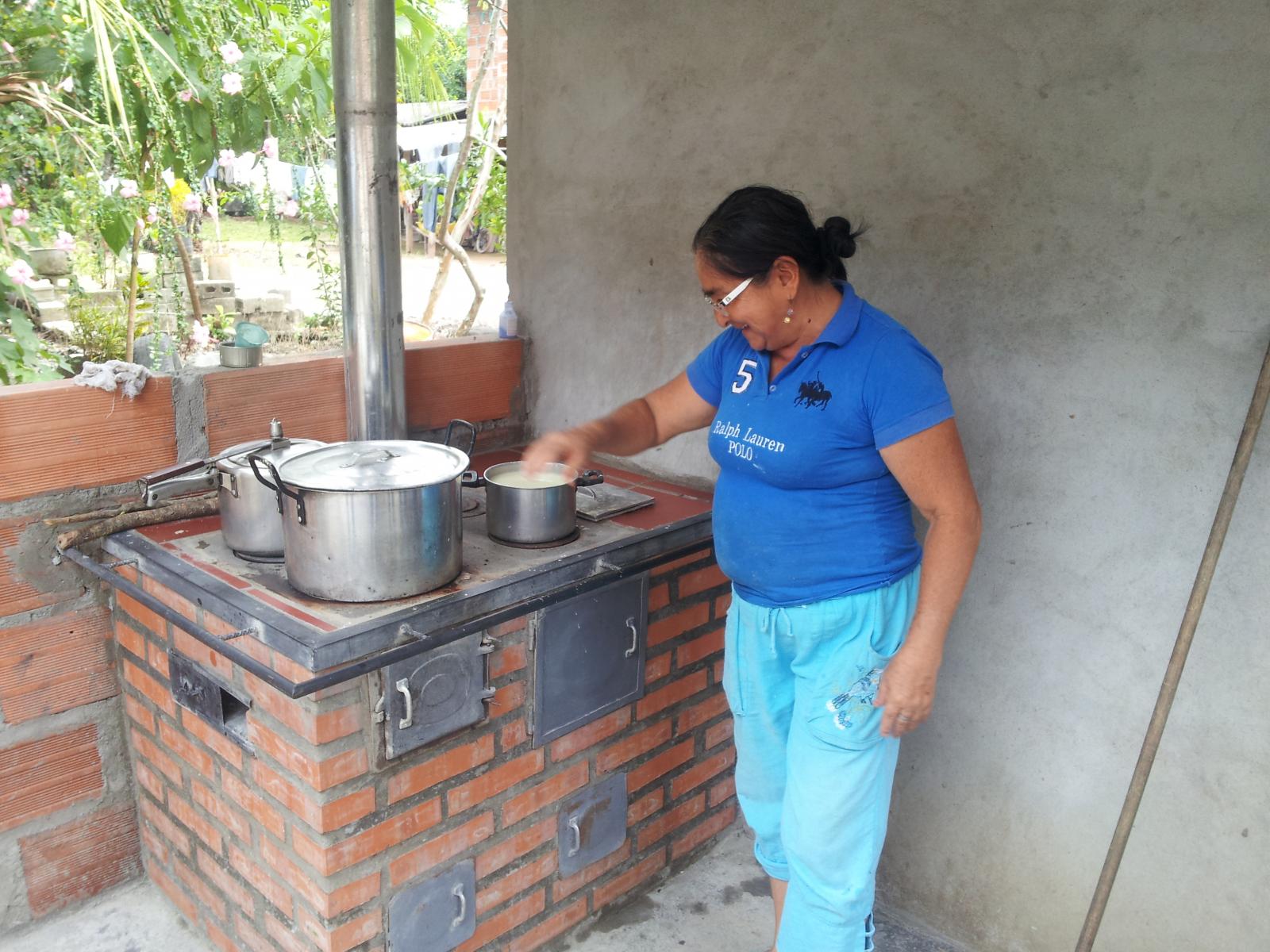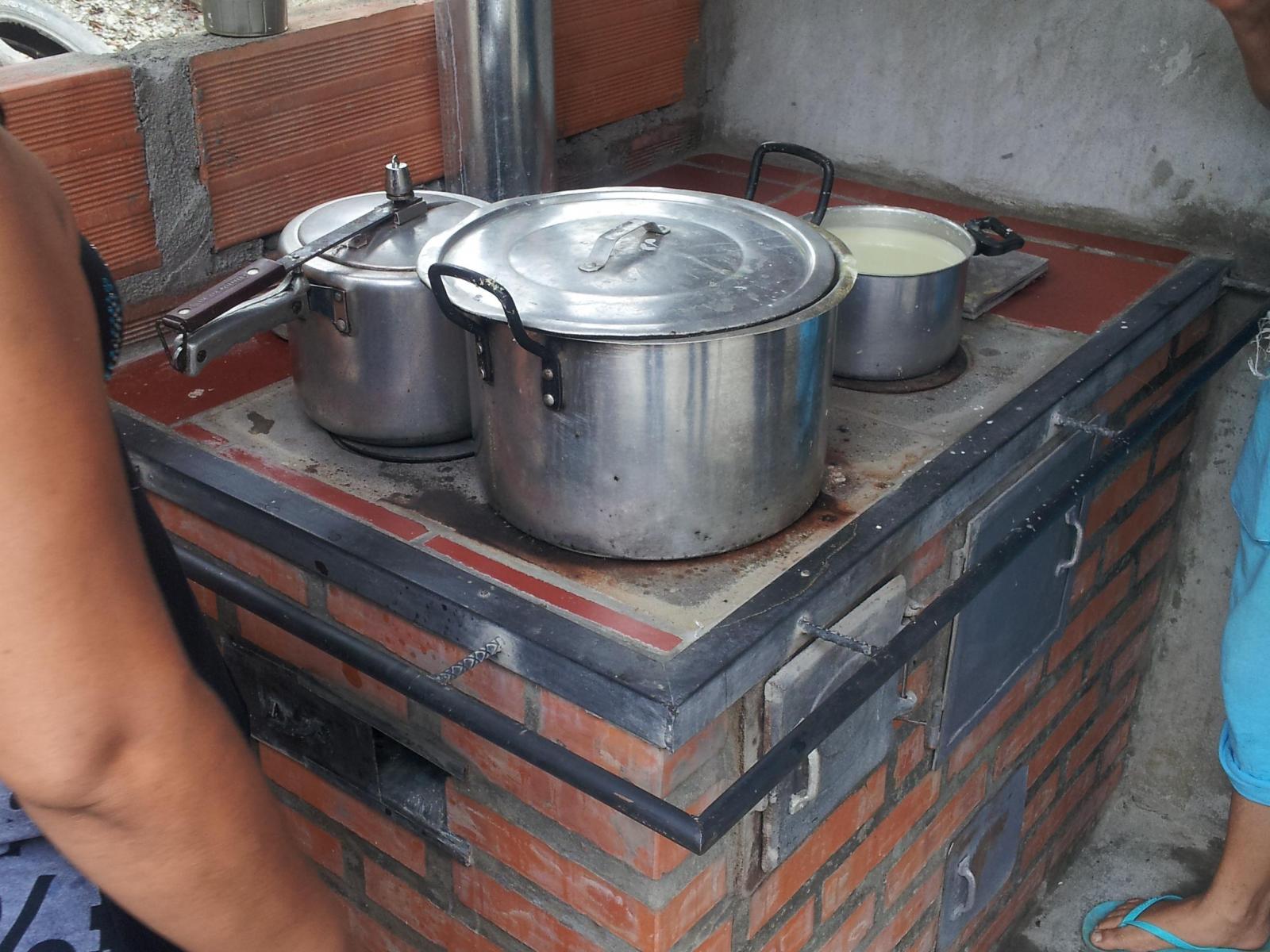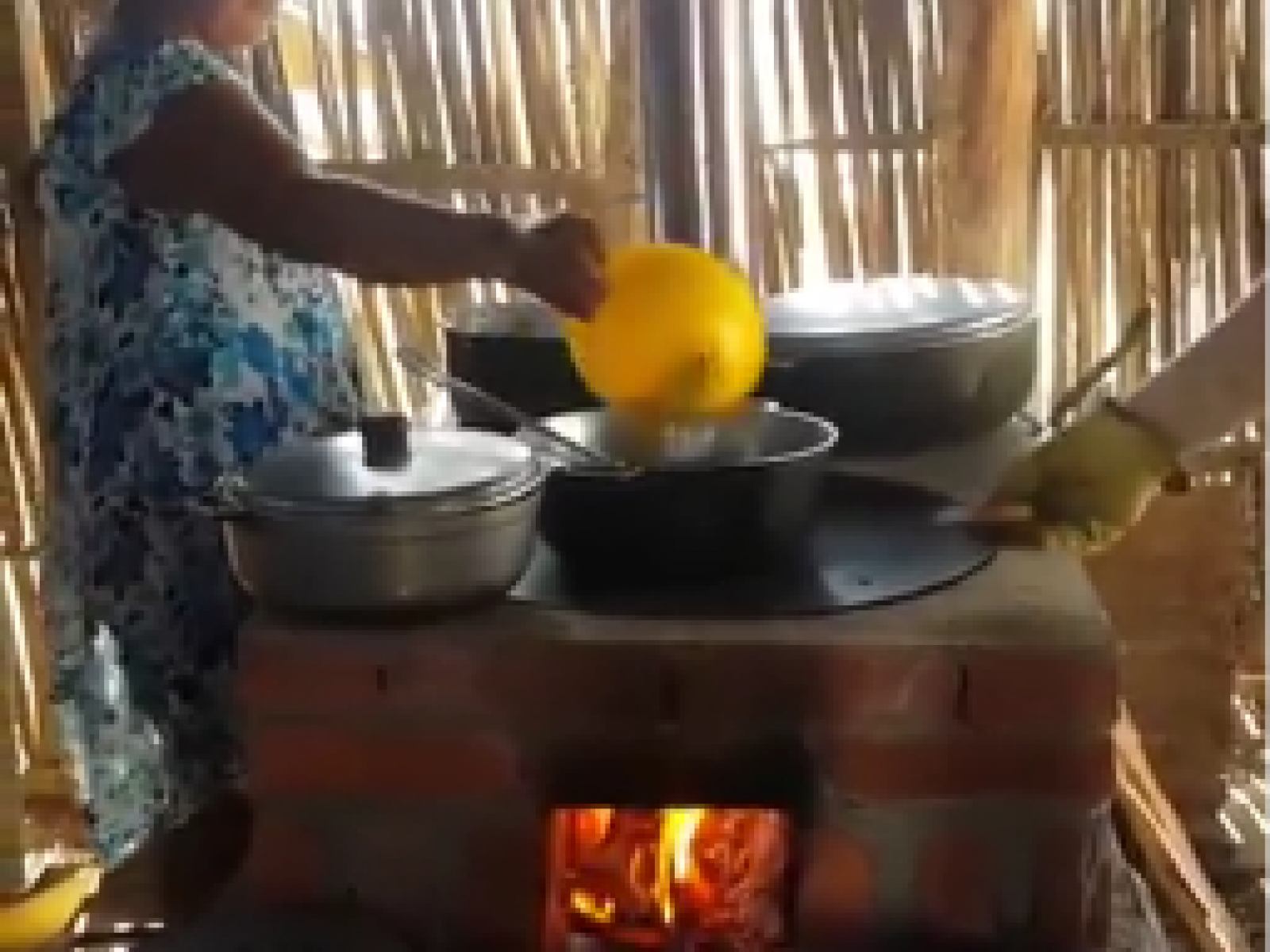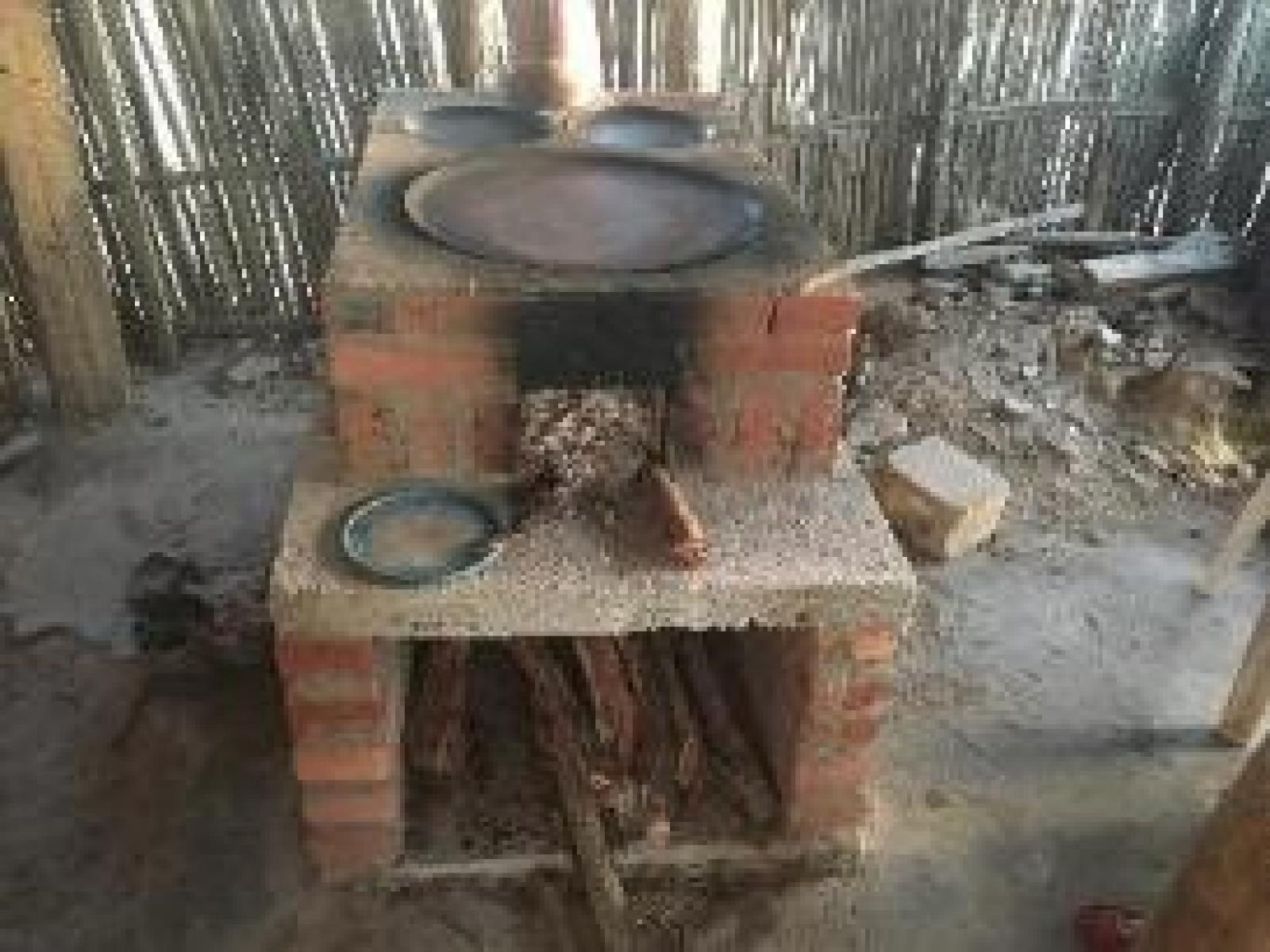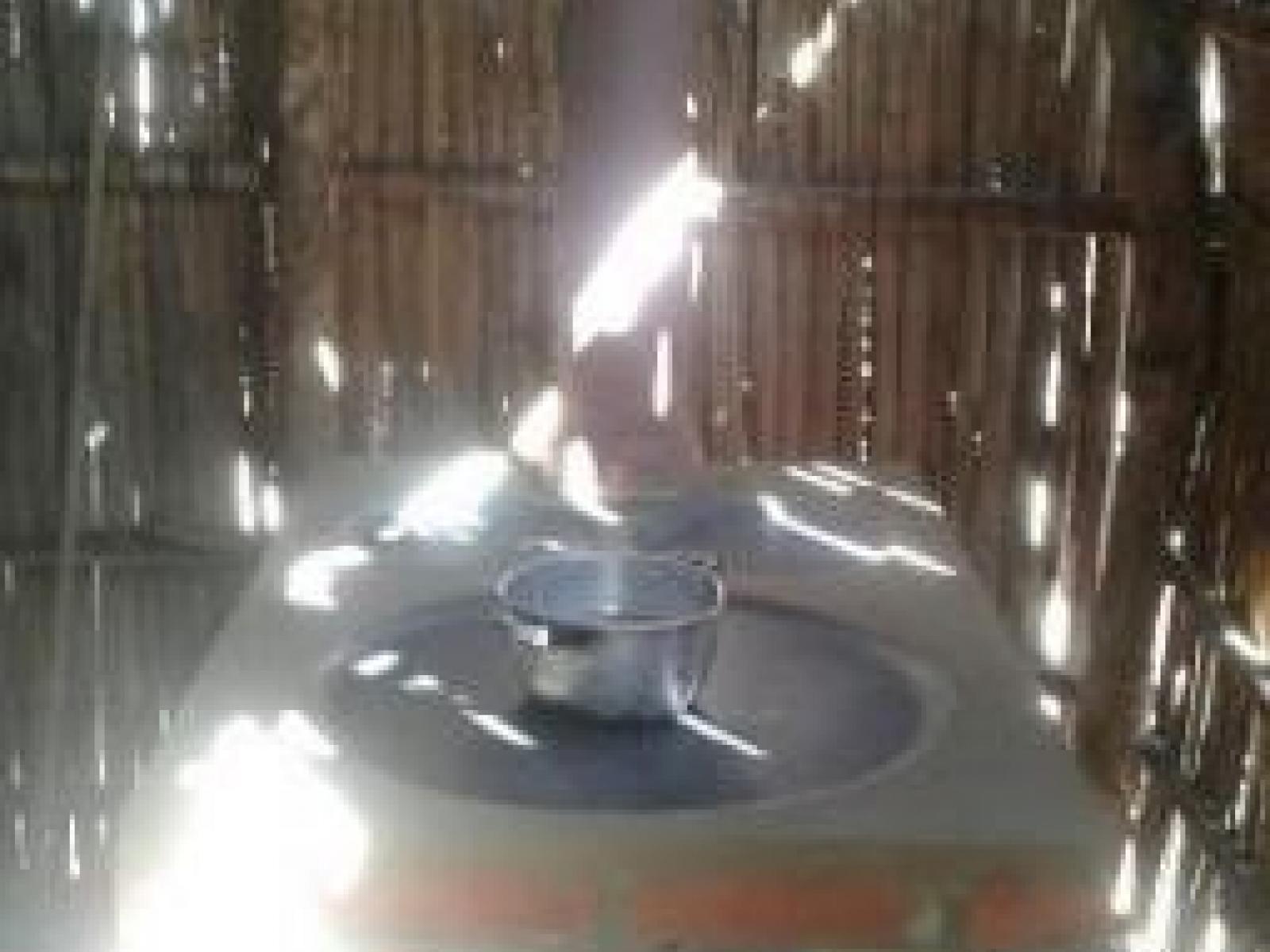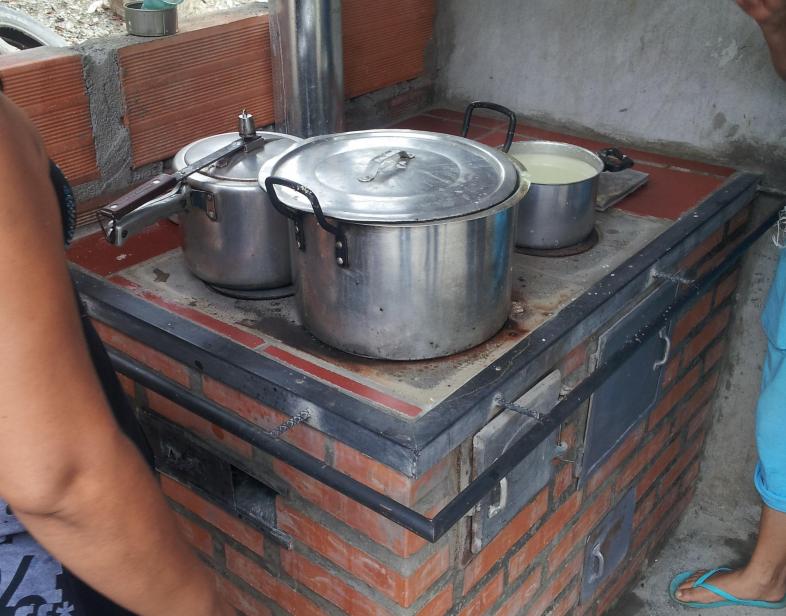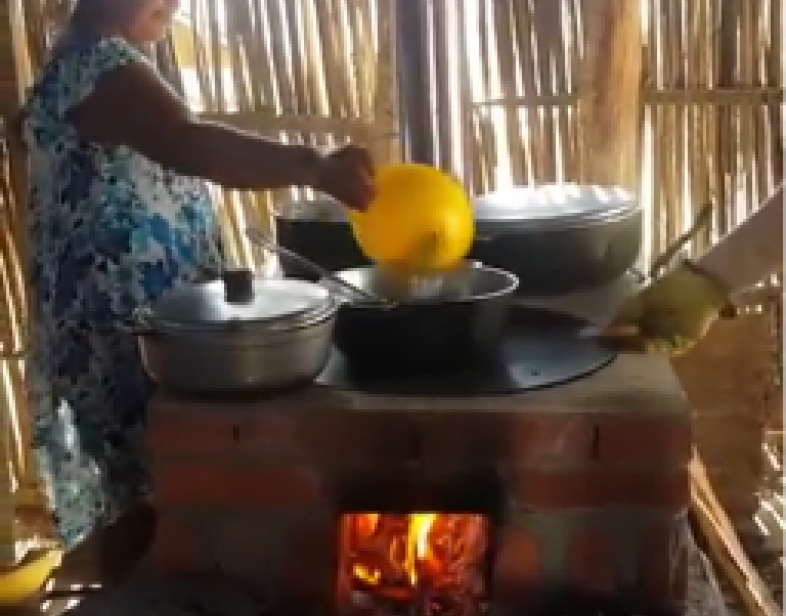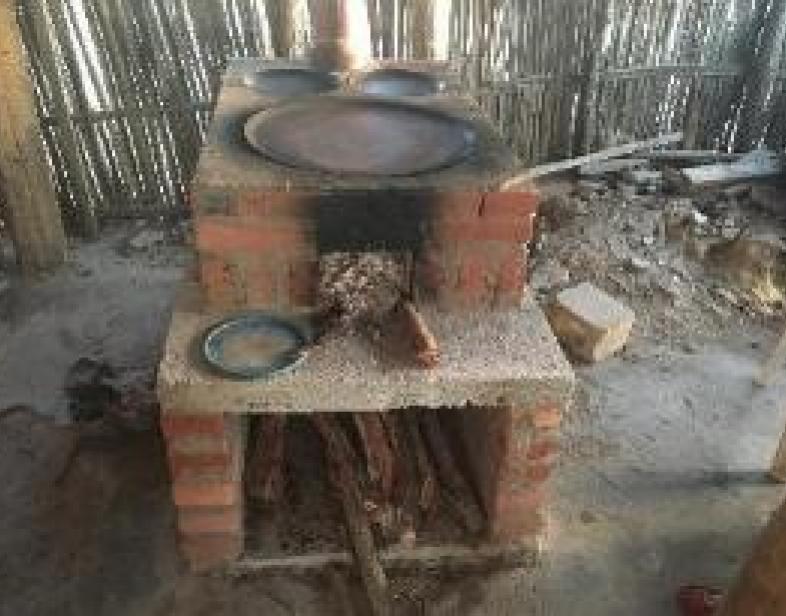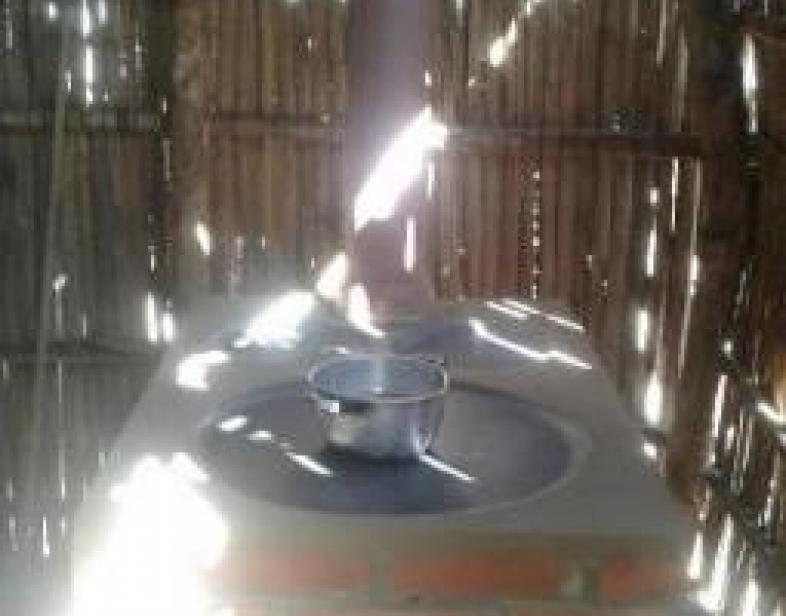An Overview Of Our Solution
At least 1,5 million Colombian families still use fuelwood for domestic cooking. 95% of those families use open fires and are subject to all their deleterious impacts on health, mainly affecting women and small children, and causing 2286 deaths annually and generation costs to the national health system of more than USD 350 million. Implementing a massive clean cookstoves program is urgent and requires the recognition of the cultural diversity of the county, to guarantee the successful adoption of the proposed technologies. So, the participatory design of culturally appropriated models of cookstoves for different regions in the country and the provision of financial mechanisms are key issues to improve adoption in regions where distribution programs are urgently required because of prevailing poverty and health conditions, and increased deforestation.
- Population Impacted: About 6.000.000 people, nationally
- Continent: South America
Context Analysis
Dissemination of efficient cookstoves in Colombia has relied traditionally on 100% government subsidies (which provides political/electoral benefits to some institutions and local politicians), delaying the massification of the program; cookstoves are considered as “gifts” by final users, who have no incentives to look for it and tend to wait for the government to get to them. It is reflected in the fact that around 60.000 cookstoves have been implemented in the country, and no overall monitoring has been performed by implementing institutions regarding adoption and permanence. However, some local data indicates that adoption rates are lower in indigenous/traditional communities and in places where no maintenance services are provided. This situation continues to aggravate deforestation/degradation issues, especially in areas with vulnerable ecosystems or scarce forest cover and, of course, the health problems related to smoke inhalation, with a high cost for people and health system.
Describe the technical solution you wanted the target audience to adopt
The technical solution is a national program to distribute any model of clean cookstove that comply with this requirements: a more efficient cooking device that provides an effective reduction of fuelwood consumption and, consequently a reduction of GHG emissions in the atmosphere and of smoke in the kitchen; the device can use (less) fuelwood or any other cleaner fuel; the design has to match the cooking needs of local communities, including size, number of pots, diet requirements, available materials, etc. and should include the local community in the decision making process to select the best technology; the solution has to be affordable, and must count on financing incentives to increase the interest of final users and improve adoption rates in the medium and long term. Users will not adopt the whole program but will use and benefit from its constituting elements.
Type of intervention
Describe your behavioral intervention
Dissemination of efficient cookstoves in Colombia has not been very successful, when compared to other countries with similar realities. While more than 1,500.000 cookstoves are required, only less than 100.000 have already been built in the last ten years, and a rather high percentage of them are not currently in use, due to issues related to lack of maintenance, lack of knowledge on the benefits of the technology and, more worrying, to the lack of match of the implemented technology with the needs and cultural requirements of the final users. The eventual abandonment of such cookstoves is not only a matter of wasted resources but also the delay in the solution of crucial health and life quality issues.
Just a handful of small projects have tried a different approach in co-designing culturally appropriated cookstoves models with local (including indigenous) communitites, that match their diets, cooking habits, anthropomorphic features, and available wood/fuel resources.
We try to avoid the implementation of generic cookstoves models, designed for other cultural realities and ecosystems, and proceed with the design/adjustment of models that fit the prevailing cultural and social views on fire, food and cooking, to guarantee the continued use of cheaper, more accessible and more efficient technologies. These designs will allow to reduce the cost of access to the technology and the generation of small local entrepreneurship that facilitates its dissemination.
As needed, please explain the type of intervention in more detail
The intervention is one of emotional appeals, where the knowledge of the real needs of local communities and the relationship with their environment, culture and society is key at guaranteeing the adoption of clean cookstoves technologies (adopting a technology has a strong link with the relationship of this technology and culture, that are not rational arguments in the decision making process). It also has to do with social incentives since adoption is higher when a process of recognition of the individual needs is incorporated in the supply of solutions to local problems. Economic incentives, such as micro-finance solutions, also can be considered social ones, because the rules established to access a technology are more democratic.
Describe your implementation
Since 2014, Fundacion Natura has proposed a national program of efficient cookstoves, aimed at enhancing the implementation of cookstoves in rural areas all around Colombia, that initially planned the distribution of cookstoves at zero cost for the final users, counting on the financing provided by national partners (private companies and local authorities). However, the slow pace of implementation carried us to evaluate the barriers for implementation and adoption of the cookstoves and we found out that the reliance of the program only on private/public cooperation without the participation of the final users in the financing, the cost of the technology itself, and the mismatch between the provided technologies in some areas and the local conditions were some of the facts that avoided the expansion of the program. That is why the it evolved to include: (a) the generation of a market-based scheme to finance the distribution of cookstoves, with participation of financial institutions; (b) the promotion of new models, built locally, with local easily available materials, or produced in series, to reduce the costs to the users; (c) the creation or adjustment of existing models with local communities, and with previous anthropological studies to understand the rationale behind the use of fire and traditional cooking techniques. So far, barriers (a) and (c) are the most limiting ones to expand the program, but the establishment of agreements between local micro-financing institutions and cookstoves manufacturers, and the execution of pilot projects of co-design in some areas have proved successful, and shown promising results that need to be scaled up, in terms of adoption of cookstoves and involvement of final users in micro-crediting strategies to buy a cooking unit. Besides, we designed a Gold Standard verified carbon project, that generates carbon credits that can be purchased by private companies wanting to offset their GHG emissions and provide additional finance.
External connections
The proposed solution is not to be implemented exclusively by Fundacion Natura since the effort is bigger than our institution and requires the participation of multiple stakeholders in different regions of the country. That is why a series of partners have been involved in the process and need to strengthen their role: (a) the National Government, with the aim of, in the end, designing a NAMA for efficient/clean cookstoves in Colombia; (b) local governments, to provide partial support to the implementation and commit to reduce subsidies (their level) no avoid hampering the implementation; (c) local providers of technologies and financing institutions, working together in participating of market-based mechanisms; (d) NGOs, including Fundacion Natura, participatory developing new models of appropriated cookstoves, especially for indigenous and black communities; (e) national and international cooperation, in order to develop some enabling conditions that still need to be worked on. This whole program has a lot to do with the Viceministry of Rural Development and their program of improving of rural households, which should include the supply of clean cookstoves as a crucial part of it, and the Ministry of Health, which should support the monitoring of co-benefits in health that increase the achievement of SDG 1, 3 and 13. In terms of policy, the initiative supports Colombia´s LCDS and the recently approved Climate Change Act.
Who adopted the desired behaviors and to what degree?
The initiative has been implemented, as a pilot, in 3 departments (states) of Colombia, the most relevant one in La Guajira department, where local rural communities belong to the wayyuu indigenous people. With these communities, Fundacion Natura has built around 500 cookstoves of a model specially designed with them to meet their requirements of shape (a cookstove to walk around), visibility of fire (for wayyuu people, fire helps them to interpret their dreams and plan their day), height of the fire, size of the pots, and local diet. After 2 years of the construction, around 95% of the cookstoves are operative and communities are glad to use them, in comparison with previous projects where a different model (usual in the Andes, far from La Guajira) was used and where adoption rates are less than 20%. These rates have been determined through monitoring strategies included as part of a carbon project that also generates carbon credits and supports financial sustainability.
How did you impact natural resource use and greenhouse gas emissions?
The implementation of a national clean cookstoves program is one of the actions that has been prioritized by the Colombian Government as one of five with the biggest potential to contribute to the mitigation goal of 20% of GHG emissions in 2030, according to the Colombian LCDS; this potential has been estimated between 1,5 and 2,5 million tCO2e every year, once the program is fully implemented. Besides that, the improved energy efficiency of cookstoves also reduces the amount of fuelwood from natural forests by 20-25% from a 4 kg per person daily consumption rate; assuming families of 4,5 members, in average, that is a reduction of 1.971.000 tons of biomass per year, that has a big impact on local deforestation rates, specially in areas of tropical dry-forests or where local forest cover is poor and the supply of fuelwood is scarce.
What were some of the resulting co-benefits?
The co-benefits of clean cookstoves implementation are very clear and straightforward: a reduction in fuelwood consumption, that is usually extracted from natural forests, leading to reduced local deforestation rates; the conservation of locally important flora species, such as the so called “trupillo”, a bush tree of cultural importance for the wayyuu people and a key species for water conservation in La Guajira; the reduction in time for fuelwood collection, a task that is usually assigned to women and that sometimes exposes them to social risks and generates an additional burden on them. But the most important co-benefit is the reduction in health issues generated by smoke in indoor kitchens, with poor or no ventilation, that include lung and coronary diseases, COPD, and ARDS, affecting mainly women and children under 5 y.o.; this benefit could contribute to reduce the annual number of deaths in Colombia due to indoor pollution in rural areas, currently 2.286.
Sustainability
Since 2015, a market-based scheme is being promoted by the Ministry of Environment, Fundación Natura and the ADMIRE program and a set of tools and incentives (to supply and demand) have been generated to facilitate the transition between both schemes; the expected outcome of such actions is an increased rate of dissemination, but adoption is still a challenge. That is why this cultural approach has been proposed; and cooperation finance is required to remove some existing barriers. Besides, a Gold Standard validated/verified grouped project to generate carbon credits is also supporting the implementation of the cookstoves program, and financial resources from credit sales are being invested in monitoring and expansion of the program.
Return on investment
The implementation of efficient cookstoves in Colombia is expensive (USD 600 each) when compared with other Latin American countries, because the models used in the country are not completely appropriated to the social and economic conditions; all cookstoves distributed correspond to fixed models, built on-site, heavy on labour and impossible to be built in series; and all the cost is to be bore by the government. Meanwhile, the cost of locally appropriated models, using alternative materials, is around USD 200-300, making it more affordable for families and even for the government if the subsidy is no more than 30%; this will reduce the cost of implementing a comprehensive cookstoves program in Colombia.
How could we successfully replicate this solution elsewhere?
Replication has already started; Fundacion Natura has worked in at least five regions (departments of the country) and has implemented around 10.000 clean cookstoves, of at least three different models in the past 3 years, and we are ready to work in other regions. At least three micro-financing agreements have been promoted involving financial institutions and local cookstoves providers, and the first micro-credits have already been awarded. However, the impact of these recent changes is yet to be done, so follow-up is required and eventually the introduction of adjustments, as well as diffusion of the proposed strategies. Further involvement of the National Government (MADS, DNP) is key to progressively discontinue/reduce the subsidies for cookstoves, and participation of local authorities is key for them to understand the market-based scheme and the need for inclusion of local communities in the decision making process (selection of technologies).
